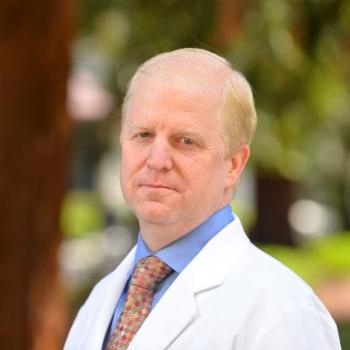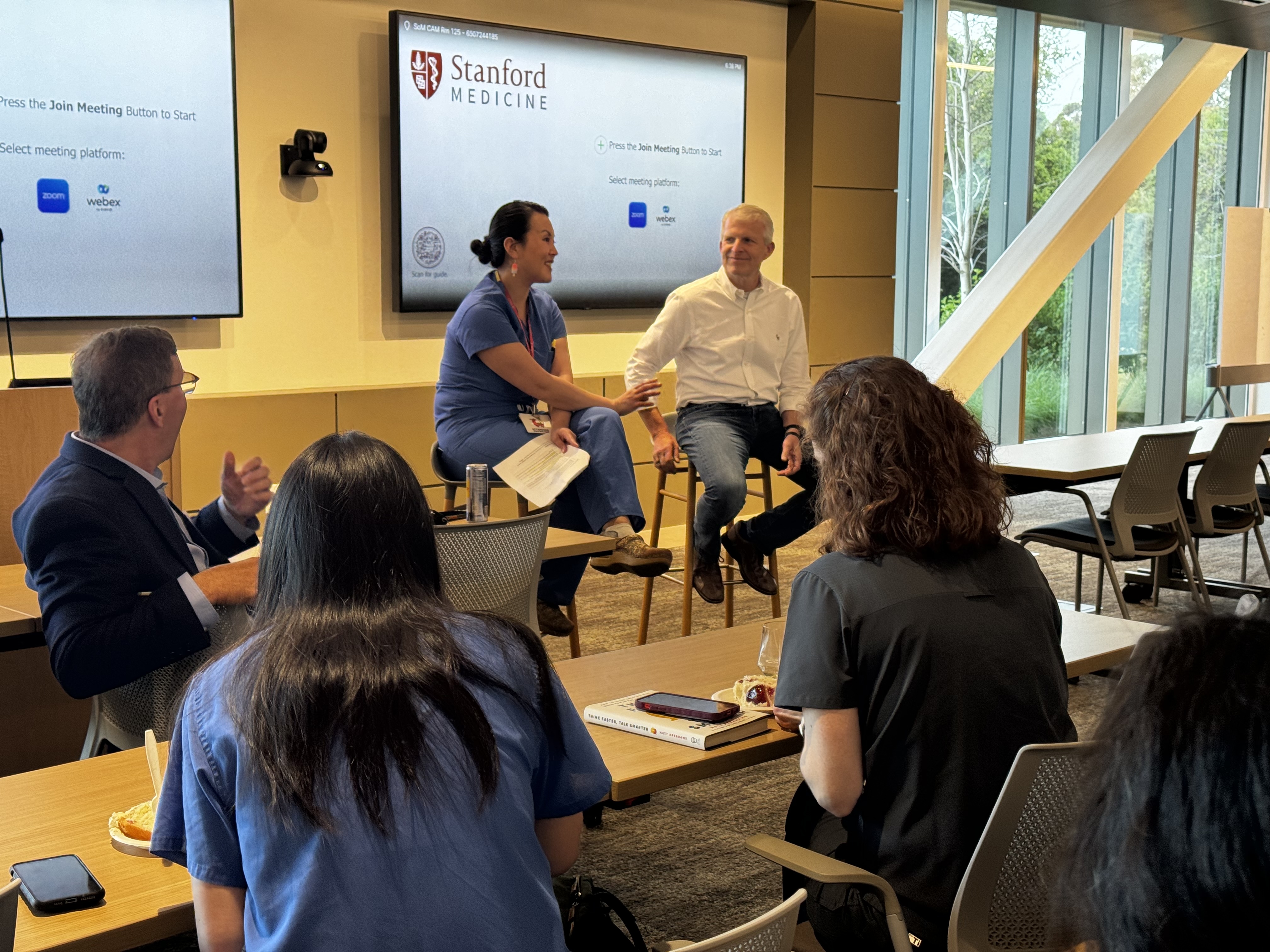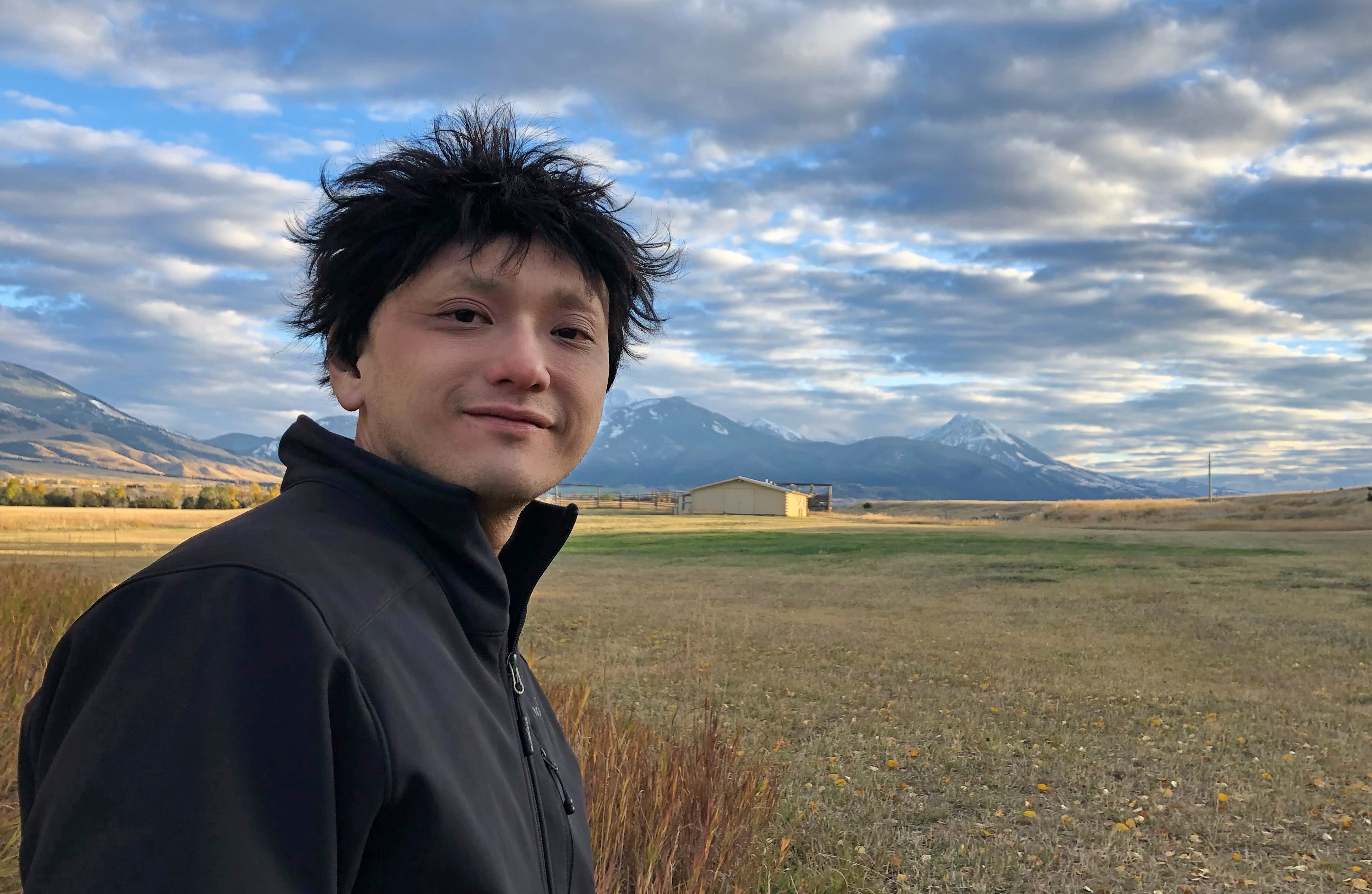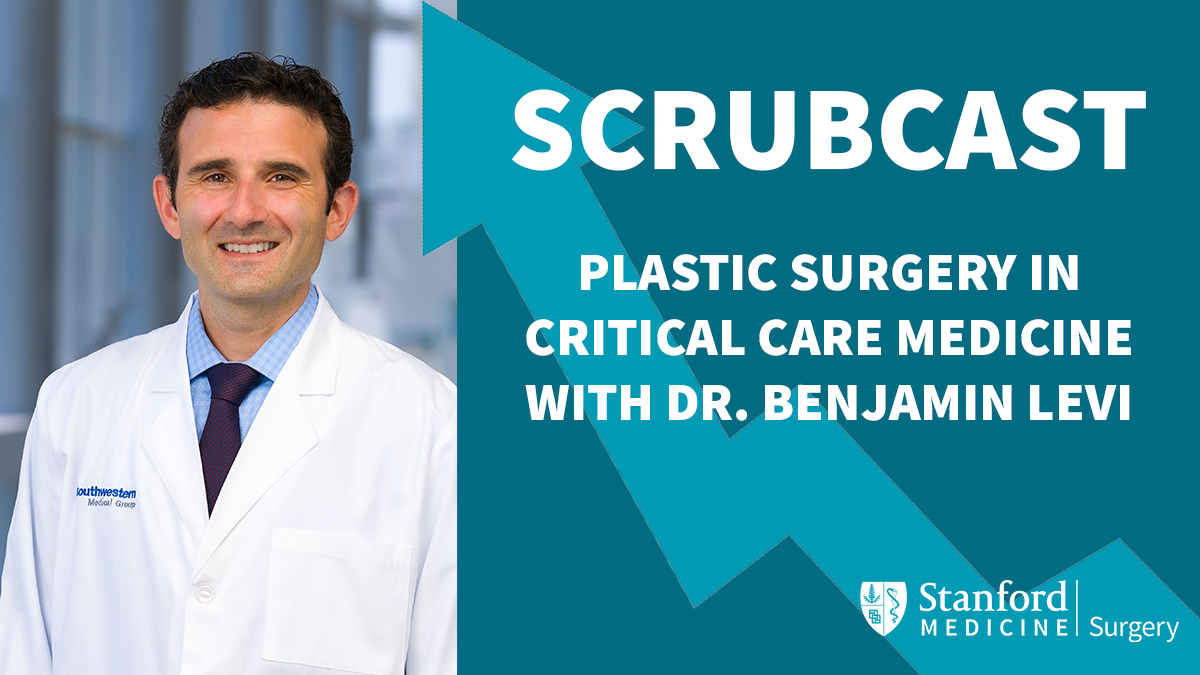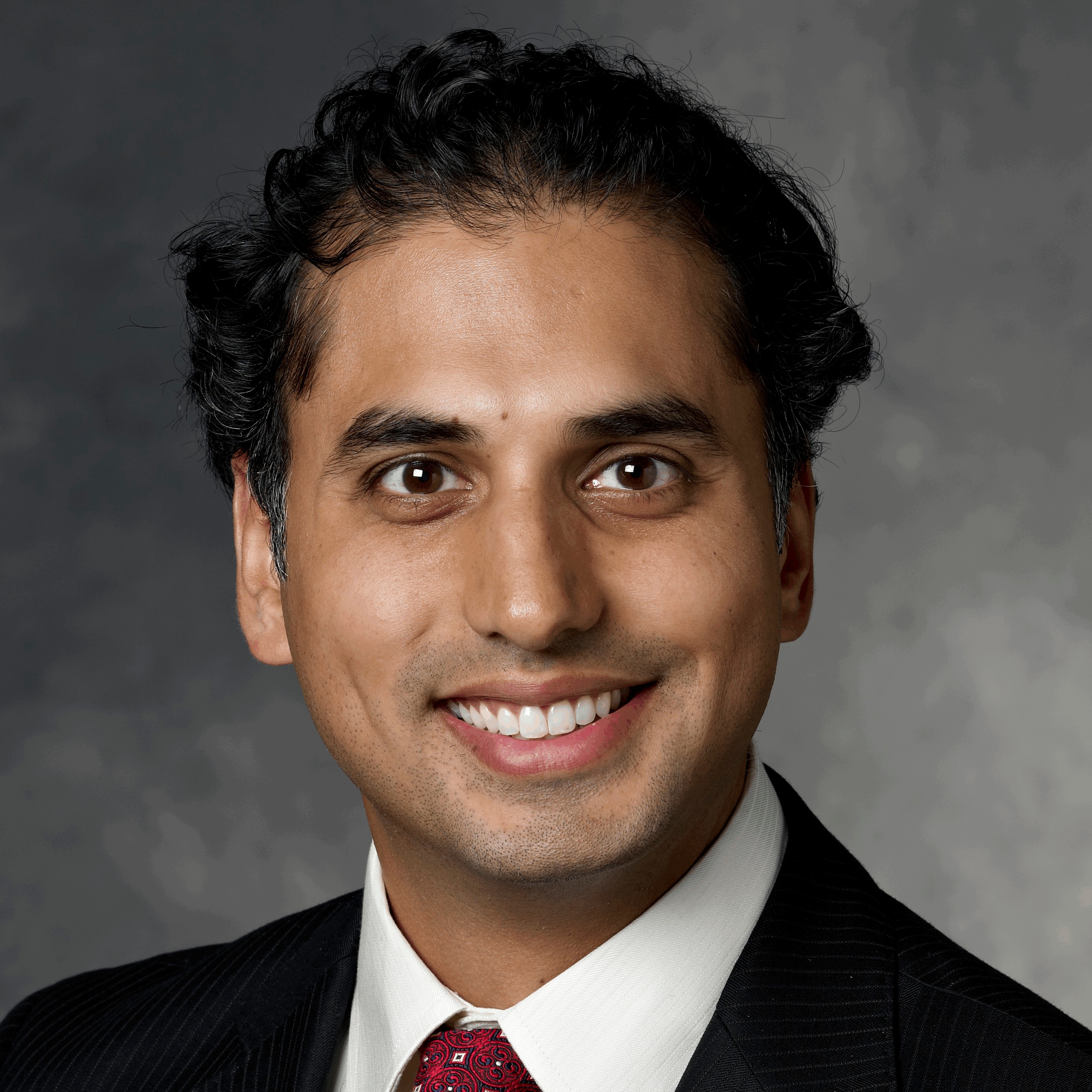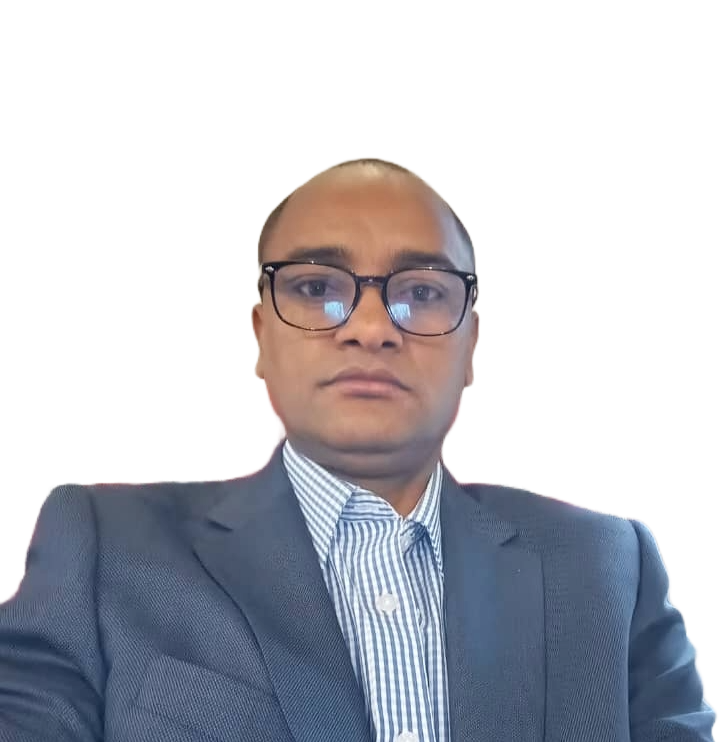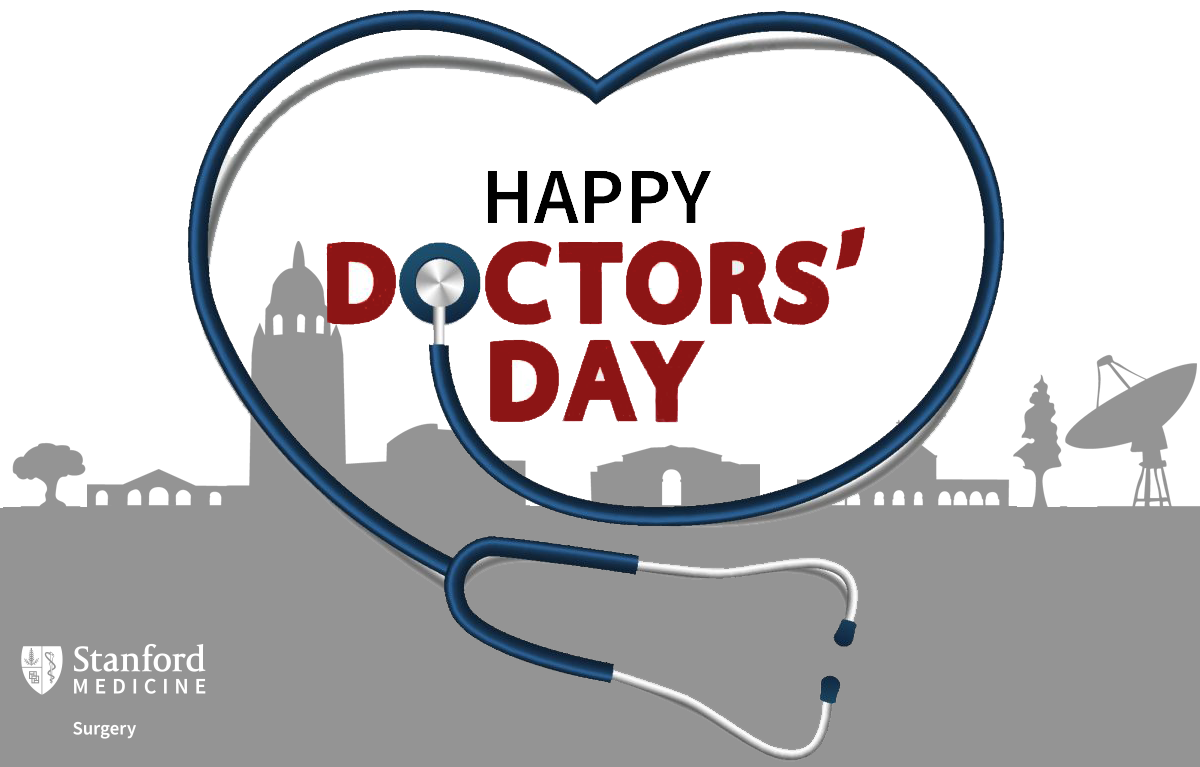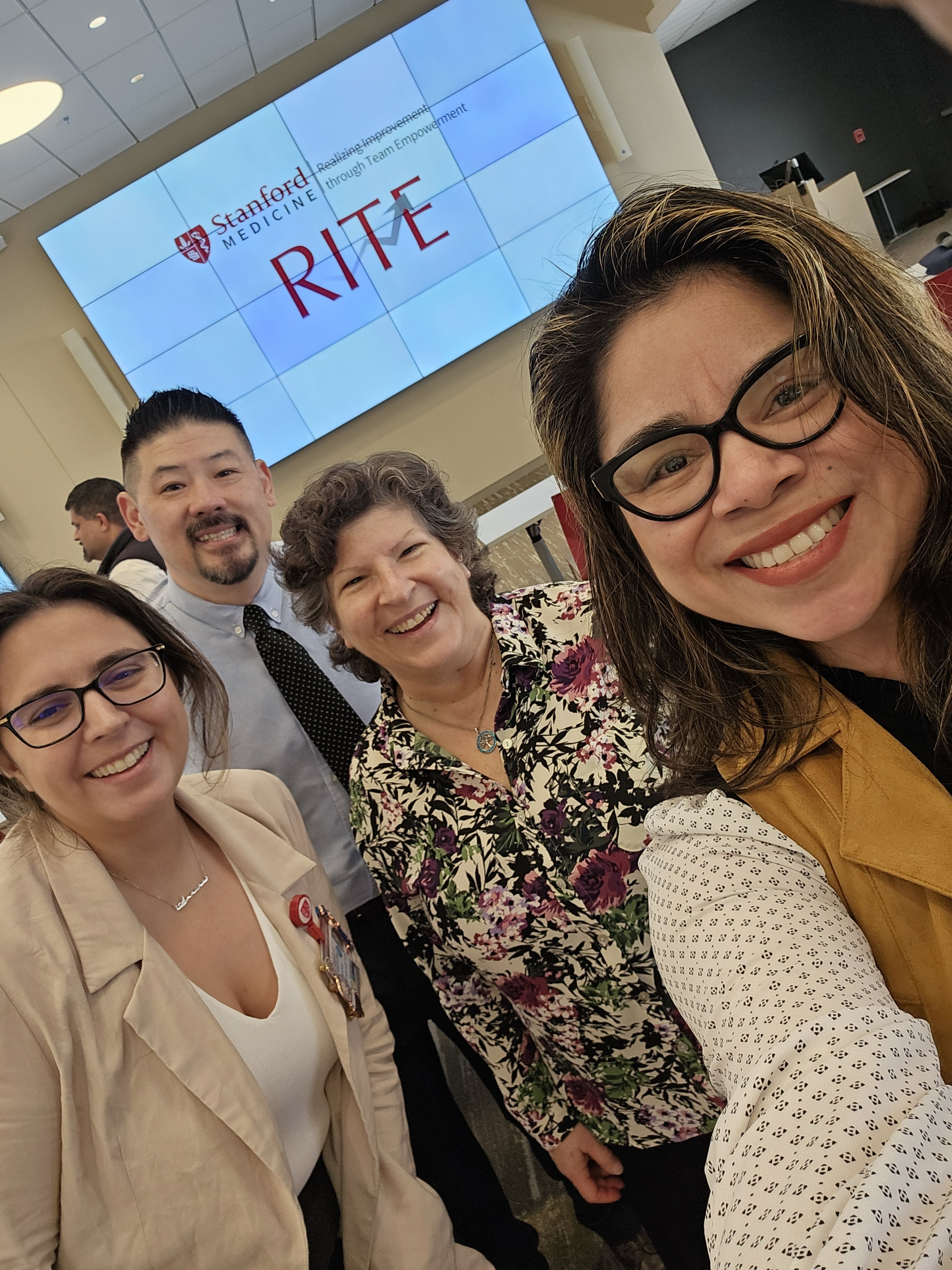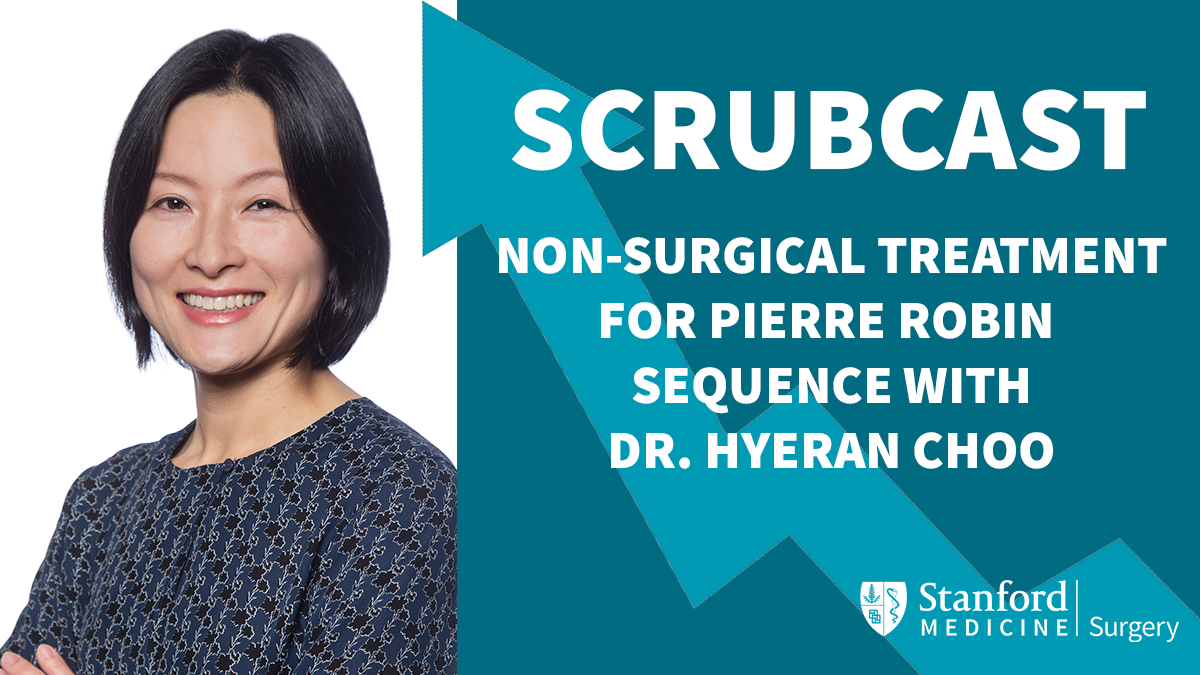SoM/GSE Fellowship Pilot Program Wraps up First Year
March 25, 2024
SoM/GSE Fellow Albaraa Basfar, PhD presents a WIP at Stanford SPIRE in early March. Photo by Ana Mezynski.
Every public-school teacher has passed a rigorous certification process. At Stanford Graduate School of Education (GSE), they take things one step further researching pedagogy to “achieve equitable, accessible and effective learning for all.” By comparison Surgery’s old educational mantra: “See one. Do one. Teach one.” seems woefully out-of-date.
“Much of the research in medical education lags behind that of the global education discipline as a whole,” said Dr. James Korndorffer, who serves as Vice Chair of Education in Stanford’s Department of Surgery. “The advances in medical education research from collaboration will benefit all disciplines involved, the learner and also through the learner, a lifetime of patients.”
Korndorffer decided to create a fellowship program linking Stanford’s School of Medicine (SoM) and GSE after enrolling in the Stanford Medicine Leadership Academy in 2018. Although the idea was put on hold due to the COVID19 pandemic, Korndorffer was able to secure funding with the assistance of the Dean of the Graduate School of Education, Daniel Schwatz PhD, the Senior Associate Dean for Medical Education, Neil Gesundheit MD MPH and the Associate Dean for Graduate Medical Education Laurence Katznelson, MD and enrolled the first two postdoctoral fellows in 2023.The program is currently wrapping up its first year.
The pilot program included two postdoctoral fellows:
• Zihan Zhou, PhD under the mentorship of Radiology’s Kawin Setsompop, PhD and Psychology/GSE’s Jason Yeatman, PhD and
• Albaraa Basfar, PhD under the mentorship of GSE’s Farzana Saleem, PhD and S-SPIRE’s Arden Morris, MD.
“The fellowship's focus on applying research to real-world applications directly aligned with my passion for improving educational equity for underrepresented minorities (URiM),” said Basfar. “The program provided a unique opportunity to develop and implement relevant research that could have a tangible impact in the field of education.”
Morris said she felt similarly but from the opposite angle.
“I had been searching for a way to improve our pipeline/pathway program for STEM-interested teens from URiM backgrounds (SMASH-Med). I hoped this post-doc could take over the program and generate new knowledge in terms of measuring success in a pipeline program,” said Morris. “I also wanted to better connect with colleagues in GSE, and this was a nice opportunity to do that with Saleem, who studies aspects of resilience among racial/ethnic minoritized teens.”
So far, Basfar, Morris, and Saleem have completed analyses from a survey of medical students to understand the interplay of formal and informal mentorship, sense of belonging, and peer/social support among medical students across the US. Basfar is also working on a systematic review to assess cumulative evidence on how best to define and measure success of such pipeline or pathway programs.
“This is an important program because it allows students multidisciplinary exposure to both the GSE and the SoM,” said Farzana Saleem, PhD, an assistant professor at the GSE. “Students have access to faculty and support across the two schools and have the opportunity to consider how education and medicine intersect.”
Zhou will present "Development and validation of a rapid robust 3D-MRF with fast online recon suitable for large-scale neuroscientific and clinical applications" at the annual meeting for the International Society for Magnetic Resonance in Medicine in Singapore at the beginning of May and "A novel approach for quantitative T1 measurements: Validation in a longitudinal pediatric sample” at the Organization for Human Brain Mapping’s annual meeting in Seoul, Korea at the end of June.
“The fellowship has solidified my interest in developing and implementing research-based solutions to improve educational equity for underrepresented minorities,” said Basfar. “I've received invaluable training in grant writing and the intricacies of working in academia. This training will be instrumental in my job search.”
Related News
- – Surgery
Dr. Korndorffer Nominated to AOA
Dr. Jim Korndorffer has been nominated by the University of South Florida (USF) Marsani College of Medicine Gamma Florida Chapter for Membership into the Alpha Omega Alpha (AOA) Honor Society in the Alumni category.
Media Contact
Bio
About Stanford Surgery
The Stanford University Department of Surgery is dedicated to inventing the future of surgical care through:
• pioneering cutting-edge research,
• developing the next generation of leaders, and
• healing through incomparable surgical skills and compassion.
To learn more, please visit surgery.stanford.edu
The Latest
- Surgery
Faculty PD Team Hosts First Networking Event
Drs. Pete Lorenz and Stephanie Chao, the vice chair and associate vice chair of professional development at Stanford Surgery, hosted a networking event with special guest Matt Abrahams.
- News Center
Chuck Chan, stem cell researcher who discovered how to regrow cartilage, dies at 48
The Stanford Medicine researcher was known for his groundbreaking work and his generous spirit as a mentor and colleague.
- Surgery
The Role of Plastic Surgery in Critical Care Medicine with Dr. Benjamin Levi
This episode of Scrubcast features Dr. Benjamin Levi, Chief of Burn, Trauma, Acute, and Critical Care Surgery at UT Southwestern and our honored guest at the 2024 Emile F. Holman Lecture.
- Surgery
Dr. Khosla Promoted to Professor
Dr. Rohit Khosla has been promoted to the rank of Clinical Professor in Surgery. The promotion is effective May 1, 2024.
- Global Health
Meet Dr. Derbew Fikadu Berhe, University of Global Health Equity researcher, educator, and pharmacologist - Global Health
Dr. Berhe will be at Stanford April 23-27 for a mixed methods research training and hopes to connect with colleagues in global health research, pharmacology, and noncommunicable diseases. His trip is sponsored by Stanford Surgery's Office of Global Engagement.
- Surgery
Surgery Expands National Doctor Day to a Month-long Celebration
Although National Doctor’s Day officially took place on March 30, Stanford Surgery celebrated department faculty all month-long with a series of events.
- Healthier, Happy Lives Blog
How a Social Media Post Led a Teen to Find a ‘Kidney Buddy’ for Life
Jaxon was diagnosed with nephronophthisis, a genetic disorder of the kidneys. Children who have this disease need a kidney transplant by the time they’re teenagers, as it eventually leads to kidney failure.
- Healthier, Happy Lives Blog
New Liver Gives a Toddler a Renewed Chance at Life
“Ocean was in dire need of a liver transplant,” says Carlos Esquivel, MD, pediatric transplant surgeon. “He was very ill and running out of time to wait for a compatible pediatric donor. We rarely get a pediatric donor. We had an offer for him from an adult donor that was his only chance for survival. We were able to use a small segment of the donated liver to save his life.”
- Surgery
Team Reduces Reimbursement Rejections by A Third
A team comprised of Linda Thomas, Co-Lead Carmen LoCascio as well as Robin Cohen, Amos Lam, Kevin Lee, Ana Mezynski, and Jackie Stahl participated in SHC's RITE (Realizing Improvement through Team Empowerment) Program and successfully reduced reimbursement rejections from 25 to 17%.
- Surgery
Non-Surgical Treatment for Pierre Robin Sequence with Dr. HyeRan Choo
In this episode of Scrubcast, host Rachel Baker interviews Dr. HyeRan Choo, a clinical associate professor in the Division of Plastic and Reconstructive Surgery. Dr. Choo is doing innovative work treating Pierre Robin Sequence—a rare congenital condition—using a non-surgical method.
